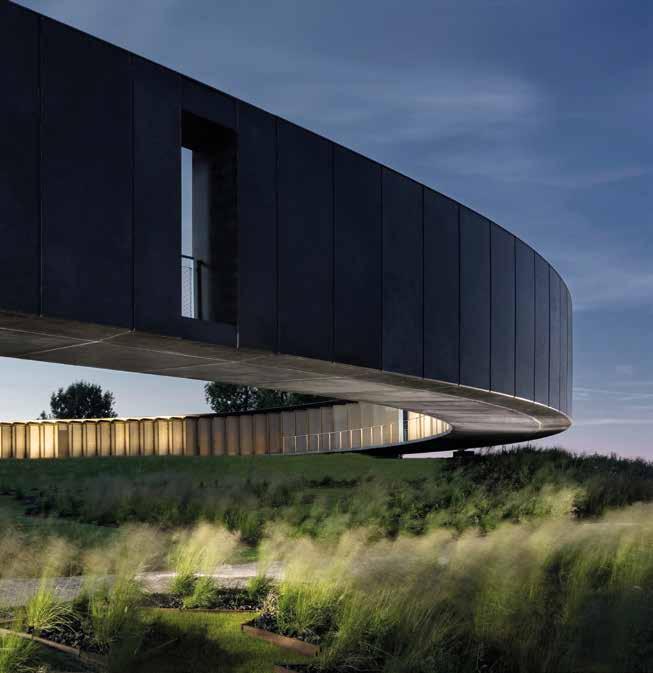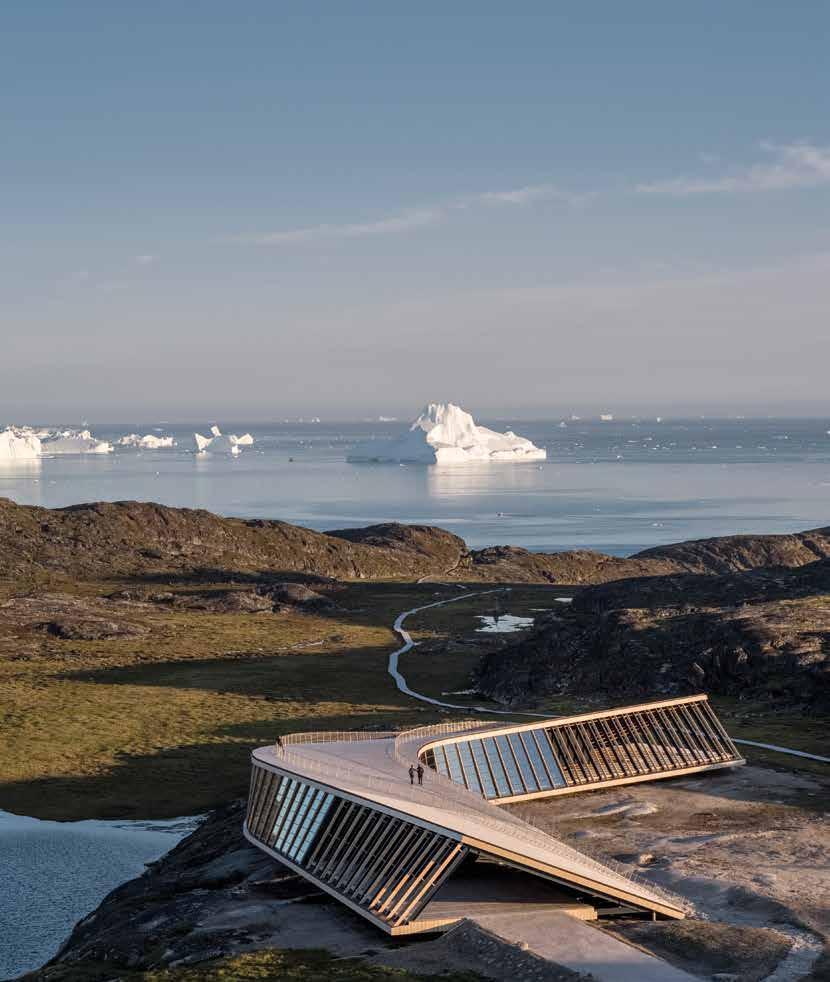
6 minute read
Advise on the procurement sub–study of ACE Sector Study.
Building Information Modelling
The work of this group contributes to promoting higher levels of practice in the EU and, in particular, addresses the critical theme of digitalisation. In addition to assisting the Practice Committee with the planning of the A.I. Conference, the group is monitoring the consultation on the impact of BIM in public procurement as well as the work of the CEN TC / 442 committee.
Advertisement
BIM–Speed/ BIM4EEB
The EU–funded projects BIM–Speed and BIM4EEB delivered tools and methodologies to support the implementation of BIM in building renovation projects. Among the results, a series of 21 training videos are available on the BIM–Speed website such as BIM Maturity tool; BIM library including energy performance, Life Cycle Assessment and Life Cycle Costing information and the Extended reality tools applied for building renovation proposals. In the BIM4EEB project the BIM Management System (BIMMS) uses the BIM model to store information collected by building sensors.
A set of 12 learning courses on the topics of nearly zero energy efficient Building and BIM was the main outcome from the BIMzeED project.
Accord
The Eu–funded project ACCORD started in the autumn of 2022 and develops a framework for digital building permits applying BIM to automate the checking against the building regulations.
ARCH–E
ARCH–E is a Creative Europe co–funded project in which ACE is a partner. Its main objective is to promote high–quality architectural solutions for the built environment by boosting the use of Architectural Design Competitions (ADCs) throughout Europe. Currently, due to national frameworks and a lack of information sharing, transnational participation in ADCs is quite low, which excludes many architects from participating and hinders competition. This disproportionately affects small and micro–enterprises, particularly those led by young and female architects, which can harm their professional development. The project kick–started in 2023 and will end in 2026.
Internationalisation & New Business Models
The IBM work group is undertaking work to develop a better understanding of the architects’ role in the value chain. It is also developing a study on optimising the organisational structure of firms and reviewing / prioritising information held on the international section of the ACE website. It will also monitor EU missions to third countries for opportunities to promote EU architects internationally.
Women In Architecture
The Women in Architecture task–force has commissioned the development of a toolkit on Equality, Diversity and Inclusion, to be published in 2023.
High Quality Architecture & Built Environment (Baukultur)
Carl Bäckstrand, Coordinator
Revision of the Construction Products Regulation (CPR)
In 2022, the European Union undertook the revision of the Construction Products Regulation (CPR). The ACE considers that the effective reform of the CPR is crucial to achieve 2050 net zero–carbon targets and the uptake of low impact materials and products. An effective CPR is also important to improve quality of life through the standardised reporting of the whole life impact of materials and products, and to enable markets to recognise the value of longer lasting, low maintenance, and healthy materials.
The ACE advocates the following changes to the CPR:
Revision of the Energy Performance of Buildings Directive (EPBD)
In 2022, the European Union underwent the revision of the Energy Performance of Buildings Directive (EPBD), as part of a broader overhaul of the EU climate and energy legislation, referred to as the ‘Fit for 55’ package. The principal aim of this package is to deliver on the climate action goal of a minimum 55 % reduction in greenhouse gas (GHG) emissions by 2030, thereby setting the EU on the path towards climate neutrality by 2050.
The main objectives of the recast EPBD are to substantially reduce GHG emissions and final energy consumption in the building sector by 2030, and to set a long–term vision for the decarbonisation of the EU building stock by 2050.
This legislative process is of utmost importance for the architectural profession as it is an unique opportunity to make the EPBD a piece of legislation that supports architectural quality and accountability of the sector, while at the same time includes the necessary mechanisms for consideration of whole life–cycle carbon emissions.
With the revision of the EPBD, the ACE pursues the following strategic objectives:
Create sustainable value through high–quality architecture;
Incorporate a whole life approach in built environment legislation;
Embed feedback and validation of building performance in use;
Accelerate and scale up low embodied carbon and deep retrofit;
Incentivise sustainable finance.
Read the ACE priorities for the revision of the EPBD on the ACE website.
Disclosure of product information; Incentivise and create a market for reused construction products; Favour construction products that are good for the indoor environmental quality; Setting embodied carbon limits for the most commonly used materials; Favouring bio–based materials and products with a high carbon sequestration potential.
Walk & Talk during the EU Sustainable Energy Week
On Thursday 29 September, the ACE organised a Walk & Talk event as part of the EU Sustainable Energy Week (EUSEW). After a Guided Tour around the site of Tour & Taxis (Brussels), the co–chairs of the ACE Environment & Sustainable Architect Work Group, Judit Kimpian and Peter Andreas Sattrup moderated a Policy Debate on the legislative and policy levers needed to enable architectural design to accelerate the decarbonisation of the EU Building stock and create lasting cultural and quality change in the built environment, with officials from the EU Commission’s DG GROW, ENVI, ENER and the Joint Research Centre. Watch the recording of the Policy Debate on the ACE YouTube channel.
Peer Learning Group on Architecture Awards
In 2022, as part of its NET–ARCH project co–funded by the Creative Europe programme, ACE initiated a new Peer Learning Group on Architecture Awards, aiming to help ACE Member Organisations to learn from each other about the running of their Architecture awards and empower them to improve their selection criteria, including building on Level(s) indicators, the Davos Baukultur Quality System, and the New European Bauhaus initiative. Over the next 2 years, the Group will produce recommendations for shared criteria for Architecture Awards.
Affordable Housing Activation Forum: Statement “For affordable & quality housing”
In May 2022, on the occasion of the Affordable Housing Activation Forum held in Madrid, the ACE released policy recommendations to tackle the housing crisis that many European countries are experiencing. The way we inhabit our planet has been elevated to the highest political level with the New European Bauhaus, which invites us collectively to reimagine our living spaces to make them more sustainable, inclusive and beautiful. It is time for immediate action. The way we design and build our housing must be rethought with respect to nature, adopting a holistic approach that seeks to recover architectural, urban and landscape quality, for individual and community wellbeing. This paradigm shift requires rethinking the regulatory framework at all governance levels and to accelerate the exchange and uptake of best practices in urban and rural areas. Read the ACE Statement “For affordable & quality housing”on the ACE website.
Urban and Heritage issues
In 2022, the ACE continued to contribute to the Cultural Heritage in Action project, funded by the Creative Europe programme and led by Eurocities. Through peer–learning activities, the project empowers cities and regions to strengthen their cultural heritage policies and initiatives and develop innovative solutions for preserving cultural heritage assets. Cultural heritage is an important asset for the economy, tourism and territorial competitiveness. It shapes the identities of cities and regions, positively affects well–being and quality of life and contributes to social cohesion. In 2022, ACE supported the organisation of two webinars on the Adaptive re–use of built heritage and on Mobilising cultural heritage for transformative climate action.
RenoZEB
The EU-funded project RenoZEB developed a modular prefabricated plug and play façade system to speed up renovation time and improve indoor environmental quality and overall building efficiency. Training courses for architects on the digital tool for the design of RenoZEB façade system and energy audits with economic study are available at Udemy platform
Arv
ACE is proud to be a partner in the Green Deal project ARV, which started in January 2022 and focuses on six large–scale demo projects: Oslo in Norway, Sønderborg in Denmark, Karvina in the Czech Republic, Utrecht in the Netherlands, Palma in Spain and Trento in Italy. These will be developed as Climate Positive Circular Communities, which is a concept that rests on three main pillars:
1) circular economy;
2) integration of people, buildings, and energy systems;
3) simplicity – achieved by means of digitalisation and industrialisation. The project will also provide guidelines and a political framework for future energy–efficient and circular solutions in the construction industry.
Soar
The EU–funded project SOAR project will conclude in 2023. SOAR stands for ‘Strengthening the security and resilience of at–risk religious sites and communities’. It aims at increasing the awareness of, and capacity to prevent and mitigate physical and human security threats to places of worship through Security by Design (SBD). The concept of ‘Security by Design’ incorporates security features into the design and fabric of the building and its urban context. In the framework of SOAR, ACE involved architects with extensive knowledge of SBD, organised 10 events related to the topic, as well as the Call for Architectural Best Practice Examples.
CULTURAL–E
ACE is also partner of the H2020 Cultural–E project. The Cultural–E goal is going a step beyond Nearly Zero Energy Buildings (nZEBs) towards the future of Plus Energy Buildings (PEBs). The team is approaching this topic by looking at climate and cultural differences in the use of residential buildings around Europe. By the end of the five years the project will have built four new Plus Energy Buildings in France, Germany, Italy and Norway. Cultural–E will also produce design tools, smart technologies, methodologies and policy recommendations, freely available for all stakeholders along the value chain.










